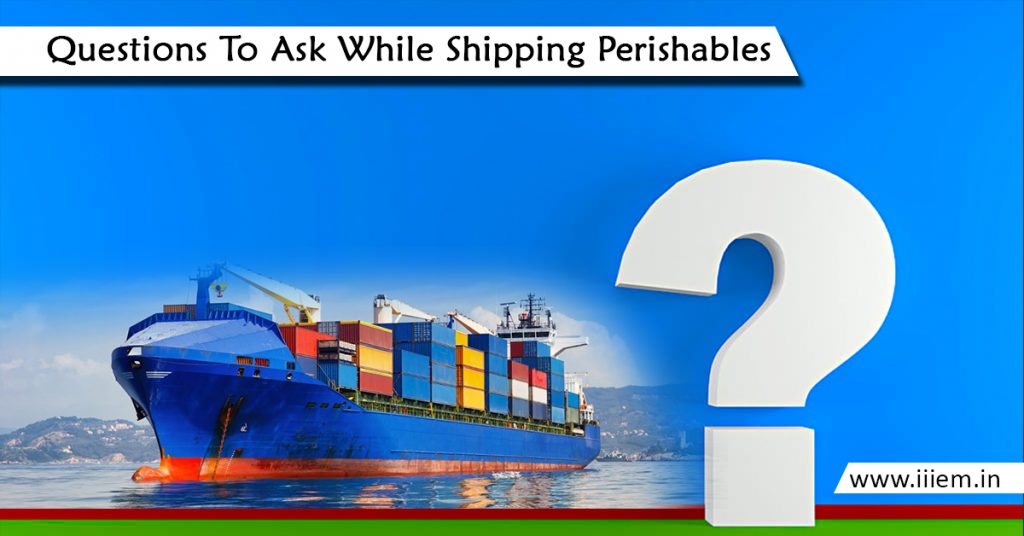
Rarely do shippers understand the vocabularies or complications of shipping perishables to ensure harmless and seamless transit of their goods. Without sufficient industry expertise, crucial shipment details may be neglected resulting in damage to the product or loss of the contract. Below are some tips and tools to consider becoming a successful exporter of perishables.
When we are approached to transport perishables goods, the conversation includes the product’s name and that it must be stored at a particular temperature; it is stuffed in boxes, on the skids, and is transported to an international city, ready to load tomorrow. We in return ask them the below questions:
- What are the terms of sale i.e. Incoterms®?
- Do we have a letter of credit (L/C) included?
- How many products (SKU) make up the lot?
- What are the particulars like weights and dimensions of each shipping product?
- Are any certified pallets used and does the product have required showings?
- Are any corners used and have the pallets been shrink-wrapped?
- Are any temperature recorders set on the conveyance?
- Which export documents have been arranged to complete the shipment?
- Do your commodities need phytosanitary certifications and have the Indian Food Inspection Agency finished the inspection?
- Which mode of transport is best: highway, ocean, or air?
- Has this cargo been pre-quoted– if yes, then what is the quote reference?
TIP: Be informed to share your information of the purchase to assure proper administration and transportation to address.
It is necessary to note that even though the client is familiar with his products and may not feel the need for these inquiries, we are not and consequently are required asking to meet specific freighting requirements. This ever-changing area is a continuous learning ground for carriers and freight forwarders. The freight forwarder- the person in management of the cargo, must have a definite understanding of the purchase to be able to respond to any circumstance from pickup to destination.
TIP: Be proactive and initiate the discussion early on.
From the above list of questions, the discussion continues until we have a comprehensive picture of the cargo and information of when, how, and where it must move. From pickup door to destination door, any issues, security concerns or documentation queries can arise that may cause a stoppage and/or negative result.
On the contrary, the carriers– airlines, steamship lines, and truckers– have a similar list of inquiries when the freight forwarder is scheduling the cargo. If we are unable to present a comprehensive understanding of the cargo, the carriers may raise doubts about a successful transfer, which could influence them to supply a booking documentation and freight rates as a matter of susceptibility. All individuals involved in a cargo transportation want to transfer the cargo in its best possible state, as quoted, and on time. Carriers are obliged under the information included in the bill of lading and/or in the booking documentation. Hence, all questions need to be asked, well-answered and agreed, and categorized on the export documents and on-hand with the freight forwarder.
TIP: Exporters necessarily be as specific as possible when planning their shipments. Be informed and prepared to share all the information with freight forwarder so they can assure the accuracy of the documentation, as well as represent him as your extension to the carriers.
Finally, never hesitate to ask any questions to your freight forwarder. They may not have all the explanations exactly as you intend, but they obtain the knowledge and respond to you as promptly as possible, just to put your mind at ease that you are getting the best service.
